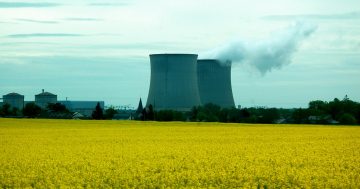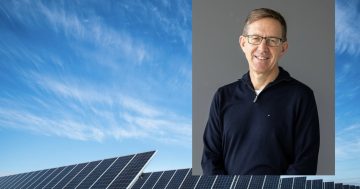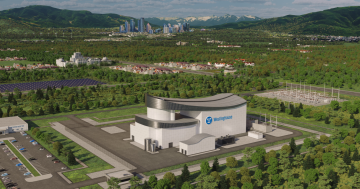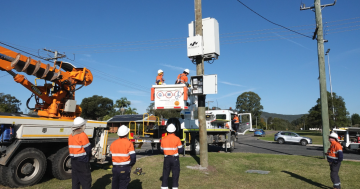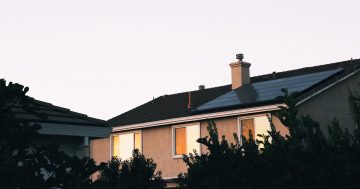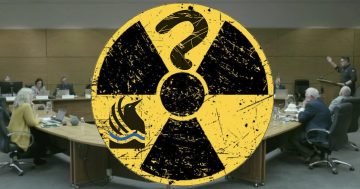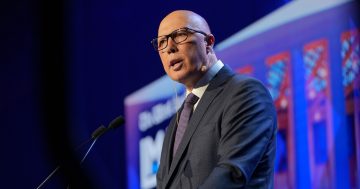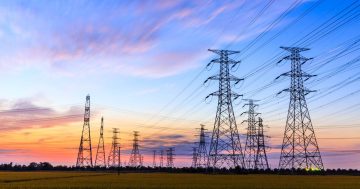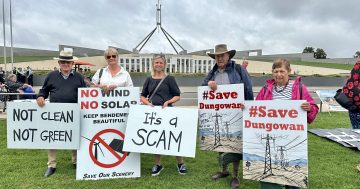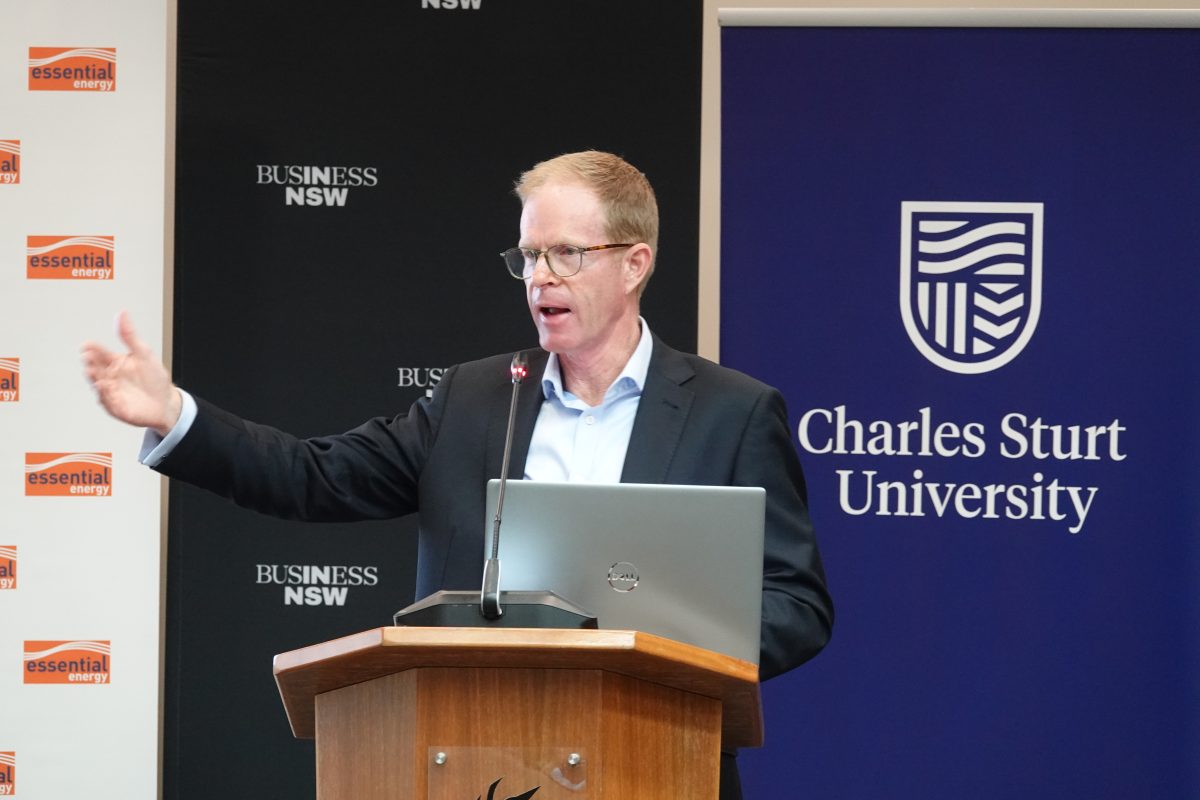
Essential Energy CEO John Cleland speaking in Wagga. Photo: Supplied.
Australia’s energy transition is being hailed as a once in a generation chance to secure our future.
In a nutshell, it involves shifting from our aging fossil fuel power plants to a ‘distributed’ network, based largely in regional Australia, that harnesses wind, water and solar energy and keeps natural gas online as a backup.
However, the push to accelerate the transition to renewables has become mired in politics and ideology with the messaging often getting lost amid culture war debates over global warming.
With the Riverina set to play a crucial role in the transition, energy companies have stepped up their local consultation to explain the promised benefits and get communities onside.
Transgrid opened its ‘Discovery Hub’ in Wagga this month to provide information on mega-projects like EnergyConnect, HumeLink, and VNI West and Essential Energy hosted an event with Business NSW and CSU.
“It is incumbent on the energy sector and the renewable sector to properly explain this transition as we work our way through it,” said Essential Energy CEO John Cleland, conceding that the global initiative was proving to be “very challenging”.
“It’s been described as the biggest single undertaking in the history of humanity, in essence, transitioning the global energy sector from baseload fossil to variable renewables and decarbonising in the process,” he said.
Mr Cleland explained that regional communities will have the chance to future-proof their local economies and take a leading role in the nation’s energy future.
“By increasing the amount of renewables that are generated and stored in regional communities like Wagga Wagga, these regions can attract new industry, creating local investment and employment opportunities,” he said.
“While a more complex electricity generation system requires an innovative way of managing the power grid within its technical operating limits, it also presents opportunities.
“And we want to ensure that regional communities reap the rewards of these opportunities.”
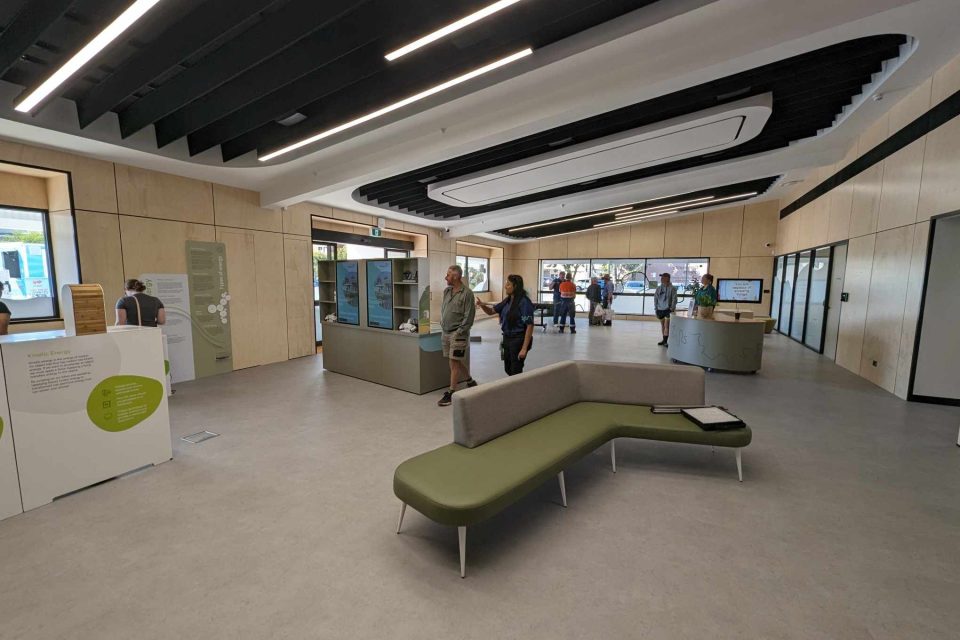
Energy giant Transgrid opened its Discovery Hub in Wagga Wagga in April. Photo: Jarryd Rowley.
Mr Cleland explained that while transmission and the introduction of new poles-and-wires networks was dominating the current conversation, the opportunities for utility-scale connections to distribution networks shouldn’t be overlooked.
“Local regional communities will have the opportunity to feed back into the Sydney Basin and the major population centres and, probably more importantly, have the ability to effectively balance generation and load at a regional level.
“At the moment, that happens across the national electricity market, which extends from Far North Queensland to New South Wales, Victoria, Tasmania and South Australia.
“It has around nine million customers and the balancing occurs across that whole system, which is the biggest interconnected system in the world.
“The opportunity going forward will be for much more localised balancing and that starts at the household level with rooftop solar and a battery.”
With pushback from some landholders and community groups, Mr Cleland said that it was vital to “carefully address land use considerations”, but he said that transition was an essential step forward.
“In my lifetime, the global population has more than doubled and per capita energy consumption has increased by more than 60 per cent, so we just can’t keep mining and processing fossil fuels to meet that need,” he said.
Conservative political leaders have advocated for nuclear power to be considered as a more reliable long-term energy source than renewables.
Mr Clelend agrees that nuclear energy will remain an important part of the global energy network, but said it is an unlikely option for Australia in the near future.
“The lived experience and reality of nuclear is that all new nuclear generation built globally in the last 40 or 50 years has ended up being very expensive,” he said.
“In Australia, we have this wonderful endowment of wind and solar and existing gas reserves and systems that will provide a very robust peaking generation source going forward.
“The economic case for nuclear is challenging but we do need to continue to monitor the evolution of the technology around small-scale modular nuclear reactors because they might in time play a role.”
When it came to the question of how Australia’s energy transition would affect our power bills, Mr Clelend said that, while there were economic opportunities at a domestic and community level, there could be more pain to come.
“I think the expectation for most people is that there’ll be increased volatility and the potential for higher prices in years to come and then we’ll transition ultimately to a system which is highly efficient and potentially lower cost,” he said.
“I think it is important that the reality of what it’s going to cost and how long it’s going to take needs to be carefully explained.
“If we get that wrong, then community sentiment will be challenged.”



